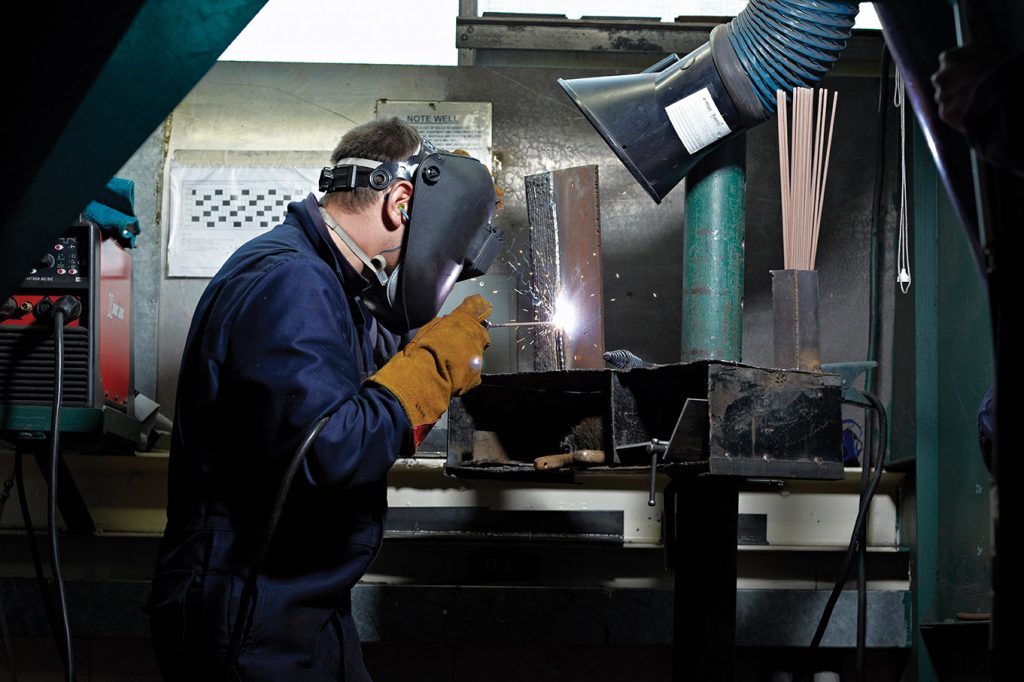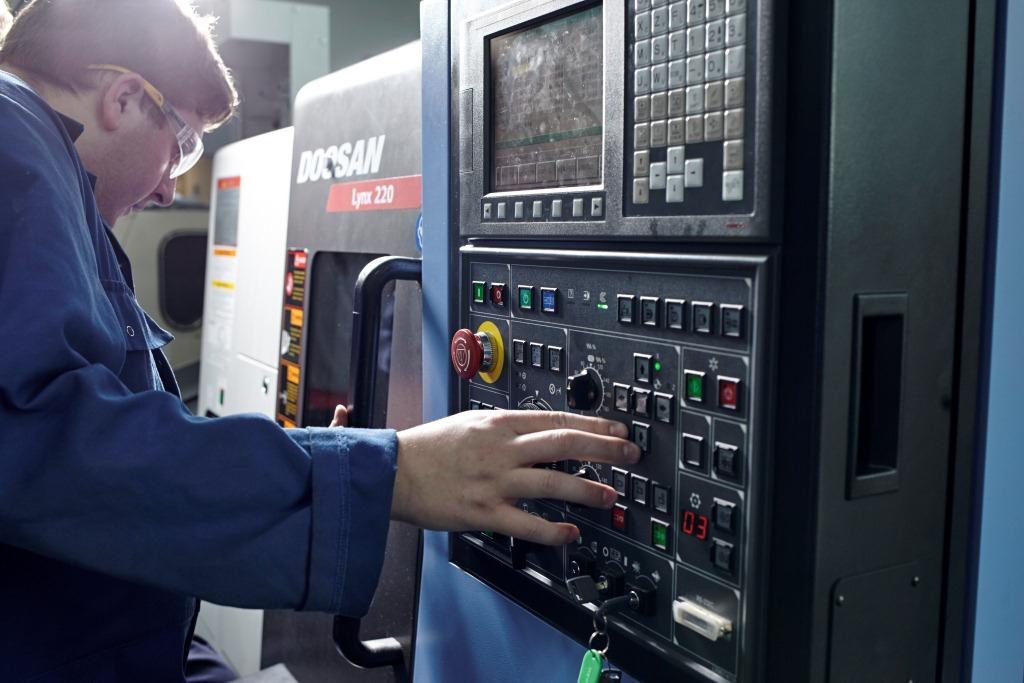Engineering is the field of ingenious creativity in the face of complex challenges. If you are curious about how things work and enjoy applying what you learn to solve real world problems, engineering is perfect for you.
Engineering Technologies at Fife College has a fantastic reputation for student achievement and progression into the industry and/or post-graduate study.
Our excellent facilities at both our Rosyth and Stenton Campuses aim to provide a stimulating learning environment for our students across engineering disciplines including electrical and electronic, mechanical, fabrication and welding, petroleum, oil and gas, and renewables.

In this growing industry, you will be at the forefront of first-class training and development. With a wide range of subjects available, from introductory level through to degree qualifications, you’ll come out with a highly marketable set of skills. Have a read below of the variety of courses on offer and the careers they could lead to.
Interested in an engineering career but not sure how to get started?
NC Engineering Systems covers a variety of core subjects in the principles of technology.
HNC Engineering Systems aims to develop your abilities to apply analysis and synthesis skills to the solution of engineering problems.
NC Engineering Practice provides a thorough grounding in the engineering principles required by people employed at technician level.
Introduction to Engineering and Technology is a fantastic entry level course which focuses on improving broad-based practical skills and knowledge with a hands-on approach.

Renewable energy plays a key role in efforts to combat climate change. Think you could be a part of it?
C&G Multidisciplinary Engineering Technician provides the underpinning knowledge and understanding required for work in the field of wind turbine technology.
Are you interested in how electrical engineers design, implement and inspect electrical components and systems?
NQ Electrical Engineering provides you with a blend of learning and can lead to engineering job opportunities across many sectors.
NC Electrical Engineering provides a blend of learning which can lead to job opportunities within large and small companies alike across a wide range of industries.
NC Electrical and Electronic Engineering is built on practical training as well as studying underpinning theories.
Introduction to Electrical and Electronic Engineering allows you to gain a large amount of practical experience in both electrical and electronic engineering and be introduced to the basic concepts while also covering basic hand skills required in engineering.
If you’re thinking about a career in fabrication and welding
NC Fabrication and Welding is the ideal course to start you on your way. You’ll study fabrication processes and skills, welding processes and metal inert gas (MIG) welding skills.
HNC Fabrication, Welding and Inspection offers you the opportunity to gain in-depth knowledge of commonly used and specialist welding processes and inspection techniques used within industry.
HND Petroleum Engineering has been designed to meet industry demand for a skilled workforce to work on oil/gas production platforms. You will find out about locating, extracting and purifying the oil and gas before it is delivered to the refineries.
As engineers all over the world continue to find solutions to problems, they also have to make sure that these solutions are mirrored by their measurement and control systems.
NC Measurement and Control Engineering covers programmable logic controllers, signal conditioning and Telemetry, and measurement technologies.
Manufacturing engineers turn raw materials into a new or updated product in the most economic, efficient, and effective way possible from research and design through to systems, processes and equipment.
NC Manufacturing Engineering will equip you with the wide variety of skills and knowledge that you will need if you are looking ahead to employment in the industry.
